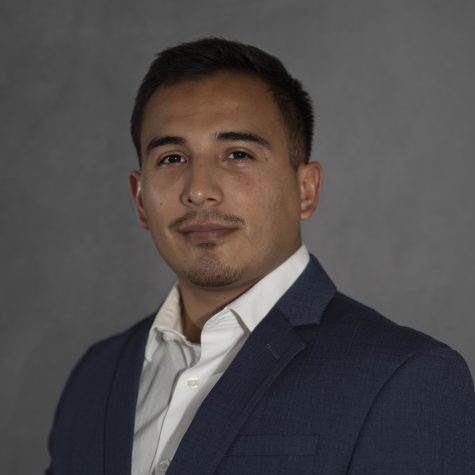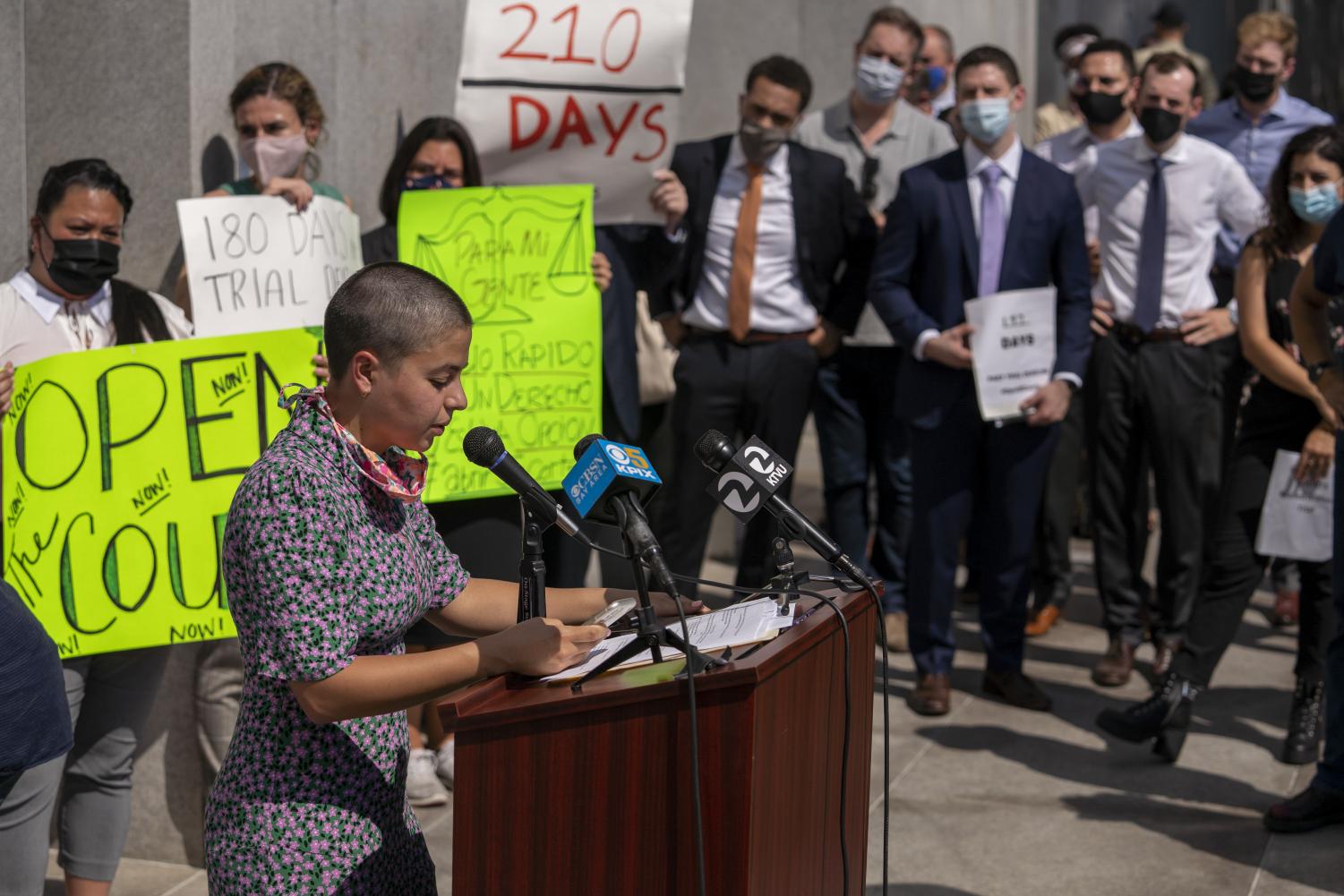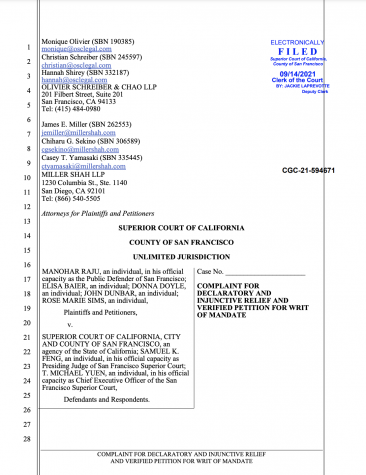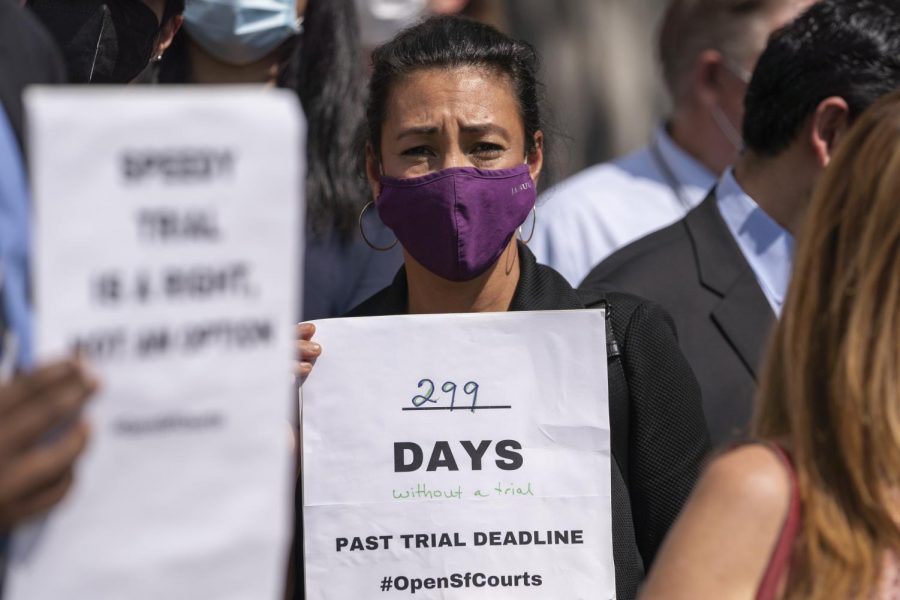San Francisco Public Defender Manohar Raju, and family members of loved ones imprisoned past their trial deadlines, spoke during a rally and press conference Tuesday outside the San Francisco Hall of Justice.
Raju and the impacted family members have filed a complaint against the San Francisco Superior Court for denying detainees their right to a speedy trial. The complaint also names the Superior Courts’ presiding judge, Samuel K. Feng, and its chief executive officer, T. Michael Yuen, as defendants.
“One of the most oppressive things a state can do is to take away your freedom and then deny you what’s necessary to win it back,” Raju said. “No one is above the law, especially not the San Francisco Superior Court.”
The complaint filed claims that “the court refuses to try felony cases at [the] civic center, despite having done so safely for 15 years, using security as a pretext, and instead prioritizes civil cases,” and added that as of Aug. 30, 2021 “the court had a backlog of about 388 cases,” past their trial deadline; 156 of those cases involved persons waiting in custody in many cases by nine months or more.
According to a news release on the Judicial Branch of California website on March 28, 2020, the state’s judicial council temporarily changed the rules on what constituted a speedy trial in an attempt to relieve some of the burden put on the courts unable to grant detainees their Sixth Amendment right.
Gov. Gavin Newsom’s executive order, signed the day prior, granted the council these powers which temporarily allowed them to make the changes necessary to continue conducting business while countering the COVID-19 pandemic.
Some of the changes constituted extending a preliminary hearing and the defendant’s right of release from a 10-day to a 30-day period, a felony defendant’s deadline for appearing in court from 48 hours to up to seven days and a deadline for holding a criminal trial and the deadline to bring an action to trial by more than 30 days.
More than a year after Newsom’s executive order, the courts have not returned to their normal operations.
Donna Doyle is one of the family members impacted by the Court’s actions and joined as a plaintiff in the lawsuit. The complaint states that her son, Deshon Marman, asserted his Sixth Amendment on Nov. 16, 2020, yet the case wasn’t sent to trial until Sept. 3, 2021, nearly a year later. Doyle also raised concerns in the complaint that she has heard her son “is only allowed out of his cell for approximately 30 minutes per day.”
“It is a humanitarian crisis that we have over one hundred people waiting in jail for months, some over a year often in their cells for 23 hours a day,” Raju said.
He added, “[that] kind of isolation and deprivation [could] cause irreversible long term psychological damage to individuals and their families.”
Raju and the complaint deem that COVID-19 can’t and shouldn’t be used as a permanent excuse for violating basic human rights.
The complaint makes the case that “San Franciscans do not have to wait months for a dental [checkup] or a haircut.” But due to the Superior Court’s failure to prioritize criminal trials, “a person accused of a crime in San Francisco may have to wait for more than a year in custody before his or her case can be heard.”
The complaint demands that the court expedite criminal case proceedings, giving them priority over non-urgent civil matters, and open all available courtrooms to hear these cases. It also demands that the court create a plan to eliminate the backlog of cases and admit to having violated both the U.S. and California constitutions.
A Public Defender’s office employee hold signs in protest of violations of detainees’ Sixth Amendment right to a speedy trial outside the San Francisco Hall of Justice on Sep. 21, 2021. The sign reads “299 days without a trial, past trial deadline,” as of August 30, 2021, 156 cases involve people waiting in custody past their trial deadline.(Nicolas Cholula/Golden Gate Xpress)





